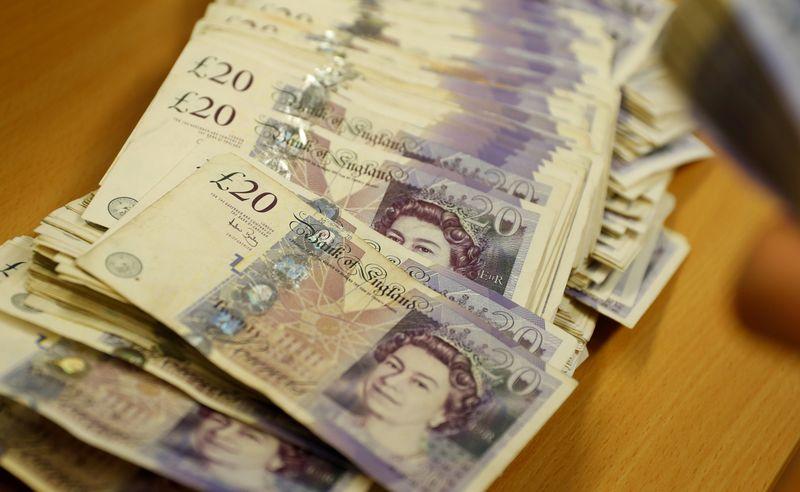LONDON (Reuters) – Sterling gained against a broadly weaker euro on Friday, making up some of the losses it sustained against the shared currency as the new year began, though it was still on track to end the week in the red.
Increased market pricing of negative interest rates from the Bank of England following fresh lockdown measures in Britain to combat the coronavirus has dented the pound, capping gains made in the wake of the Brexit deal agreed at the end of last year.
Markets are pricing sub-zero rates from Britain’s central bank as early as May 2021.
(Graphic: Money markets price negative rates from BOE as early as May 2021: )
Analysts caution this will limit sterling’s gains against the euro.
“Euro-sterling remains above the 0.90 (pence) level as the build-up of rate cut expectations (following the third lockdown) offsets the positive effect of the UK-EU trade deal,” said strategists at ING Bank in a note to clients.
“While we still see room for euro-sterling to mildly drop below the 0.9000 level, this should be limited given the rising risk of further Bank of England easing, while sterling is to benefit less from the conducive global risk environment in comparison to its European cyclical peers such as Sweden’s krona or Norway’s krone.”
Sterling gained as much as half a percent against the euro to 89.98 pence in early trading in London.
It was 0.1% higher to the dollar at $1.3579.
Sterling began 2021 at its highest levels against the dollar since May 2018 after Britain clinched a last-minute trade deal with the EU. Those gains have evaporated fast as Britain grapples with rising cases of COVID-19 amid the discovery of a new strain of the virus.
The British economy is also beginning to feel the ramifications of life outside the EU: more than 50 British retailers, including Tesco and Marks & Spencer, face potential tariffs for re-exporting goods to the European Union, their trade body said, amid warnings this could make Britain less competitive.
A survey by Deloitte showed a wave of optimism washed over bosses of major British companies in December, ahead of a tightening of COVID-19 restrictions this month, even though many thought it would take a long time to recover fully from the pandemic.
Still, half of the respondents said it would take at least until the end of 2021 before revenues return to their pre-pandemic levels – chiming with a Bank of England survey published this week.
Britain’s job market strengthened for the first time in three months in December, before a renewed lockdown this month, with an increase in permanent hiring and a small rise in the number of vacancies, a monthly survey of recruiters showed.
Source: Read Full Article
